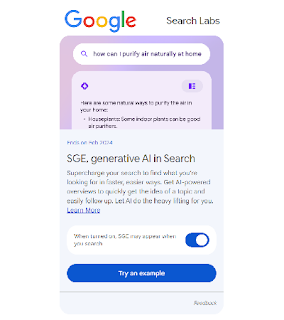What is Auto-GPT? Understanding the Implications of Auto-GPT for AI and ML
This article explores the concept of Auto-GPT, its implications for AI and machine learning, and potential use cases. Read on to understand how Auto-GPT is changing the game.
Artificial intelligence (AI) and machine learning (ML) have made remarkable strides in recent years, changing the way we live, work, and communicate.
One of the most significant advances in this field is the development of automated text generation technology, known as Auto-GPT. This cutting-edge technology has the potential to revolutionize content creation and transform the way we communicate, but it also raises important questions about the implications of AI and ML on society.
In this article, we will explore the implications of Auto-GPT for AI and ML.
What is Auto-GPT?
Auto-GPTis an automated text generation technology that uses deep learning algorithms to generate human-like text. It is based on the Generative Pre-trained Transformer (GPT) architecture, which is a type of neural network designed to generate natural language text.
Auto-GPT is trained on large datasets of text, which allows it to learn the patterns and structure of language and produce coherent and engaging content.
The Benefits of Auto-GPT
Auto-GPT has many benefits for AI and ML. It allows for faster and more efficient content creation, enabling businesses and organizations to produce high-quality content at a faster rate.
This can be especially beneficial for companies that produce large volumes of content, such as news outlets, social media platforms, and e-commerce websites.
Auto-GPT also has the potential to improve accessibility and inclusivity in communication. For people with disabilities or those who struggle with language barriers, Auto-GPT can provide an accessible way to communicate and participate in online communities.
The Implications of Auto-GPT for AI and ML
While Auto-GPT has many potential benefits, it also raises important questions about the implications of AI and ML on society. One of the primary concerns is the impact of Auto-GPT on employment.
As more content creation tasks become automated, there is a risk that many jobs in the writing and editing fields will become redundant, leading to unemployment and a shift in the job market.
Another concern is the potential for AI-generated content to be used for malicious purposes, such as the spread of misinformation or propaganda.
With the ability to produce large volumes of content quickly and efficiently, there is a risk that AI-generated content could be used to manipulate public opinion or influence elections.
The Ethical Implications of Auto-GPT
Auto-GPT also raises important ethical concerns about the use of AI and ML in content creation. One of the key ethical concerns is the potential for bias in the data sets used to train Auto-GPT.
If the data sets are biased, the AI-generated content may also be biased, perpetuating stereotypes and reinforcing existing social inequalities.
There is also a risk that AI-generated content could be used to impersonate real people, leading to issues of identity theft and fraud.
Additionally, there is a risk that AI-generated content could be used to spread hate speech or discriminatory language, leading to harm and negative impacts on marginalized communities.
The Future of Auto-GPT
Despite the concerns and challenges associated with Auto-GPT, the technology continues to advance at a rapid pace. As AI and ML continue to evolve, there is a growing need for more ethical and responsible approaches to content creation.
This includes ensuring that data sets are diverse and representative of all communities, implementing strict ethical guidelines for the use of AI-generated content and promoting transparency and accountability in the development and use of AI and ML technologies.
Conclusion
Auto-GPT is a groundbreaking technology that has the potential to revolutionize content creation and transform the way we communicate.
While the benefits of Auto-GPT are clear, it is also important to recognize the potential risks and ethical concerns associated with this technology.
By understanding the implications of Auto-GPT for AI and ML, we can work towards a more responsible and ethical approach to the development and use of these technologies.
As AI and ML continue to evolve, there is a growing need for more ethical and responsible approaches to content creation.
This includes ensuring that data sets are diverse and representative of all communities, implementing strict ethical guidelines for the use of AI-generated content and promoting transparency and accountability in the development and use of AI and ML technologies.
In conclusion, the implications of Auto-GPT for AI and ML are far-reaching and complex. While technology has the potential to transform the way we communicate, it is important to approach its development and use with caution, and to prioritize ethical considerations and responsible practices.
By doing so, we can work towards a future where AI
and ML are used to create positive impacts for society, without reinforcing
existing biases or perpetuating harm.




Comments
Post a Comment